5 Fast-Food Chains That Use Processed Cheese on Their Burgers
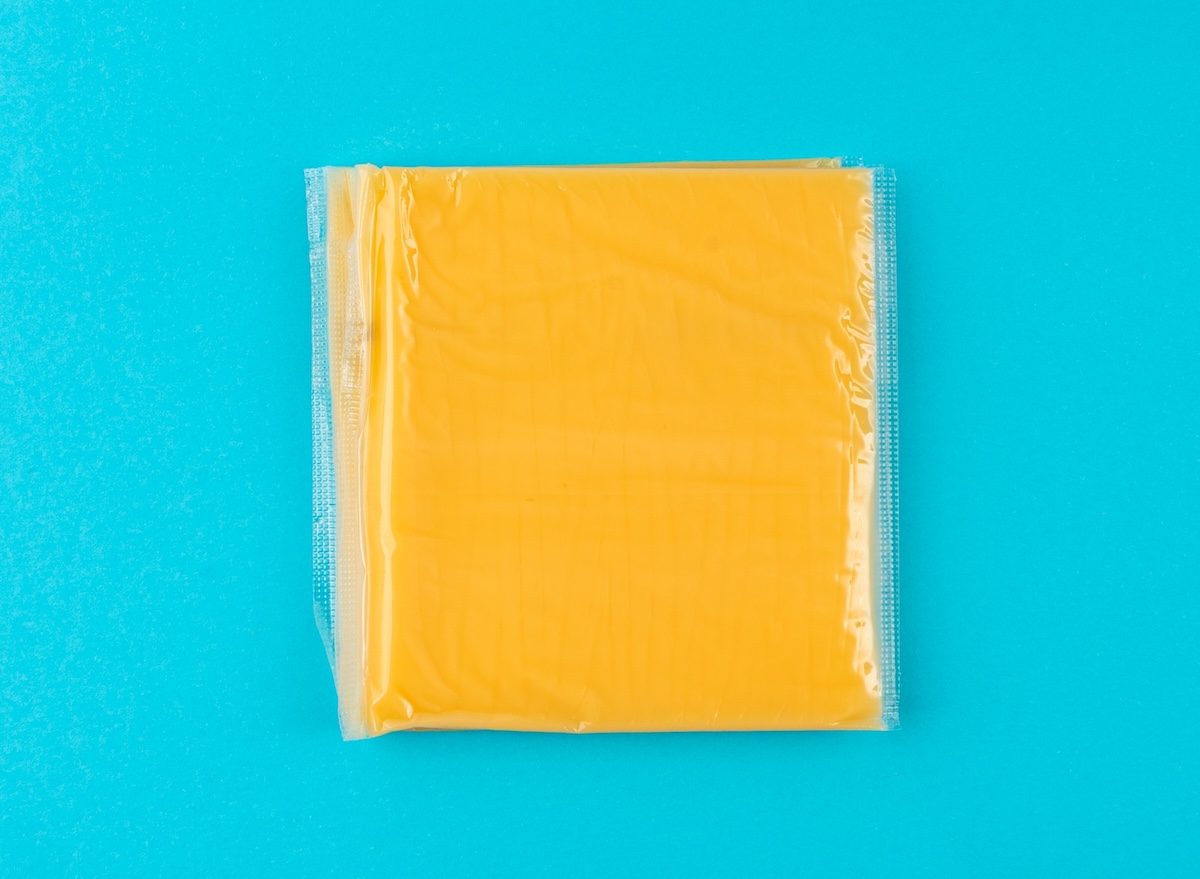
Does your favorite fast-food chain use natural cheese—or processed cheese products? While natural cheeses like Cheddar, Swiss, or Havarti are made from milk, cultures, salt, and enzymes, many fast-food chains use what’s known as “processed cheese” or “pasteurized process cheese.” These versions often contain additional ingredients—like emulsifiers and preservatives—to give them a longer shelf life and better meltability. They’re convenient and consistent, which is ideal for large-scale foodservice, but they differ from traditional cheeses. Here’s a closer look at five major fast-food chains that use processed cheese products on popular burgers and sandwiches.
McDonald’s
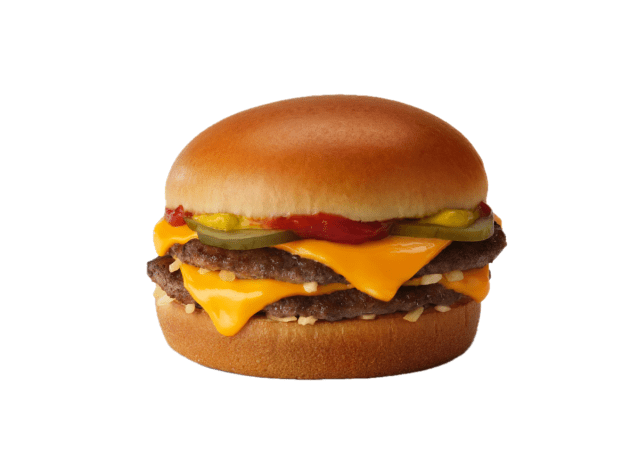
McDonald’s uses “pasteurized process American cheese” on many of its most iconic menu items, including the Cheeseburger, Quarter Pounder with Cheese, and Egg McMuffin. This type of cheese contains a blend of ingredients such as milk, cream, water, sodium citrate, salt, cheese cultures, citric acid, enzymes, soy lecithin, and coloring agents. While this cheese melts perfectly and is a signature part of the McDonald’s flavor profile, it’s classified as a processed cheese product due to the use of emulsifiers and additives. These additions improve shelf life and melting consistency, making the cheese ideal for fast food operations, even if it’s not considered “natural cheese” under USDA definitions.
Burger King
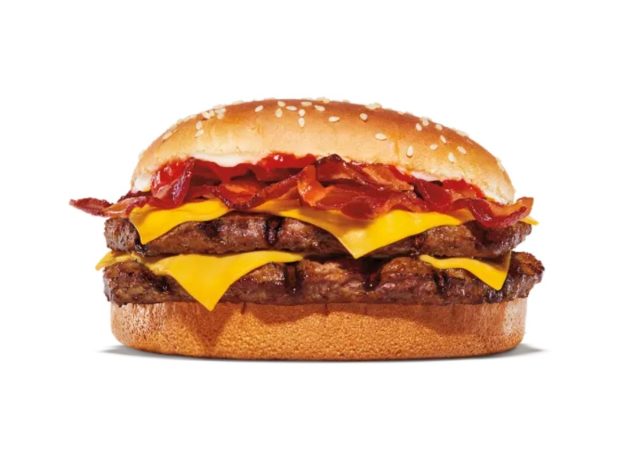
Burger King also relies on pasteurized process American cheese to top burgers like the Whopper with Cheese and Bacon King. According to former employees on forums like Reddit, the cheese used in Burger King locations is specifically manufactured for commercial use and arrives in bulk packaging, often without a familiar retail brand name. The ingredients typically mirror other processed American cheeses: milk, cream, water, sodium citrate, salt, cheese cultures, enzymes, citric acid, and added colorings. This cheese helps maintain consistency across thousands of locations, delivering the same melt and flavor in every sandwich. However, it’s not classified as “natural cheese,” which would contain fewer additives.
Sonic
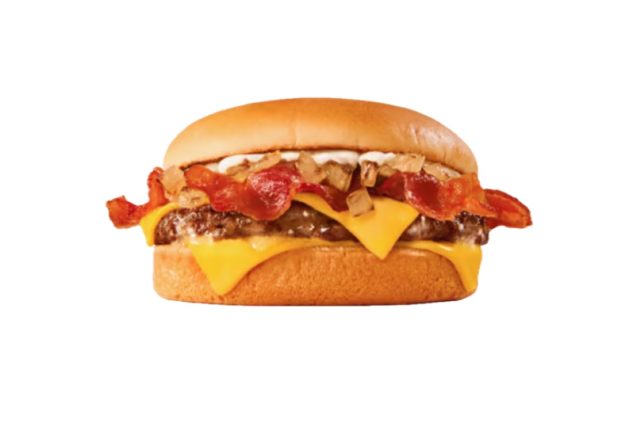
At Sonic Drive-In, processed cheese products are a key ingredient in several popular items, including the Sonic Cheeseburger and their Chili Cheese Tots. The cheese slices used are generally similar to Kraft Singles and are made from pasteurized processed American cheese. Ingredients often include milk, water, salt, enzymes, emulsifiers, and coloring. Sonic also uses shredded processed cheese in select items, primarily in their chili cheese options. Employees have noted that natural cheeses are rarely used, likely due to the consistency and meltability required in their fast-paced kitchen setups. The focus here is on delivering that classic, gooey, melty experience that customers expect from comfort food.
Dairy Queen
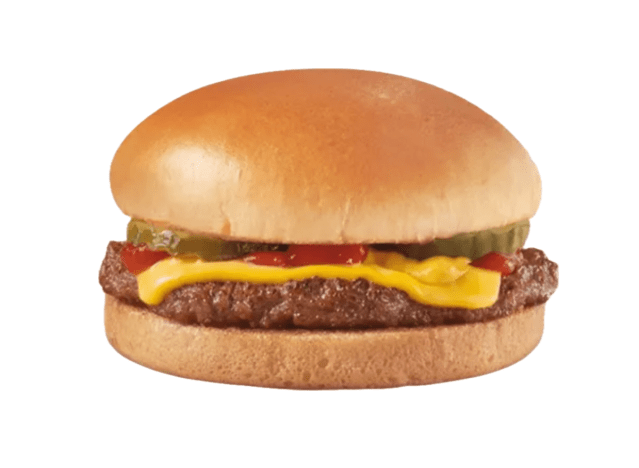
Dairy Queen uses a combination of processed Sharp American Cheese and White Cheddar on its Signature Stackburgers and other menu items. The ingredients lists for these cheeses include milk, cream, water, sodium citrate, cheese cultures, sorbic acid, citric acid, enzymes, and soy lecithin. The White Cheddar version also includes added color in some cases. These processed cheeses are engineered for consistency and food safety in high-volume environments, offering the reliable melt and flavor profile customers associate with Dairy Queen’s burgers. While they do include dairy ingredients, their classification as “processed” means they differ from natural cheese in both composition and regulatory definition.
Arby’s
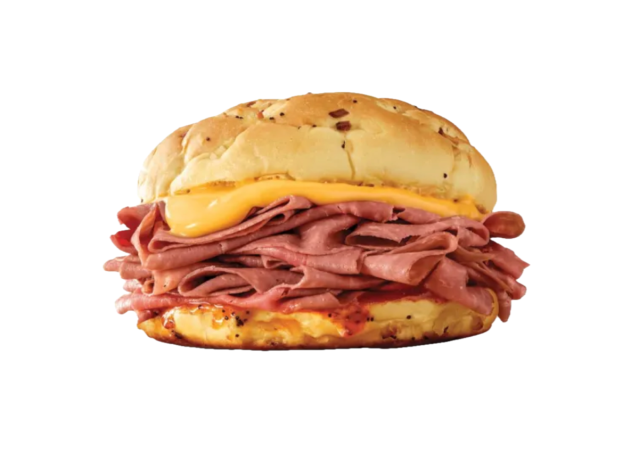
Arby’s takes a hybrid approach to cheese, depending on the menu item. The Classic Beef ‘N Cheddar, for example, features a cheddar cheese sauce made with water, canola oil, modified food starch, and various dairy-based ingredients—making it a processed cheese product rather than a natural cheese slice. Many of Arby’s burgers and sandwiches also feature processed American cheese. However, certain menu items, like the Reuben, include natural Swiss cheese made from part-skim milk, cheese cultures, enzymes, and salt. By contrast, the Swiss used in the French Dip & Swiss sandwich is processed and contains emulsifiers like sodium citrate and sodium phosphate.